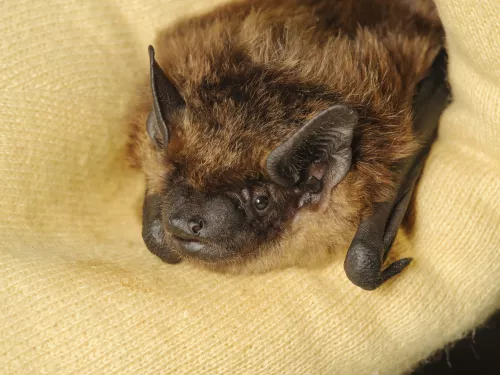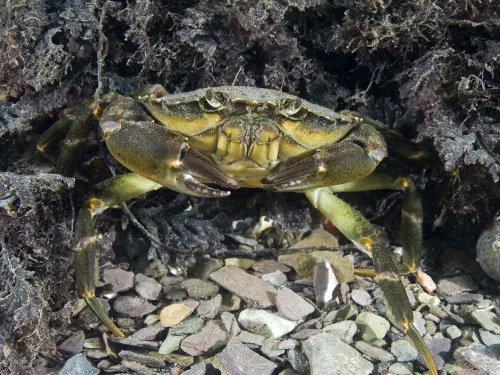
Serotine
The serotine is one of the first bats to appear at night and can be seen around lamp posts chasing moths, or at treetop height. It likes to roost and hibernate in old buildings in the south of the UK.

The serotine is one of the first bats to appear at night and can be seen around lamp posts chasing moths, or at treetop height. It likes to roost and hibernate in old buildings in the south of the UK.
This brown seaweed lives in the lower shore and gets its name from the serrated edges to its fronds.
The Sessile oak is so-called because its acorns are not held on stalks like those of the familiar English oak. It can be found in woodlands mainly in the north and west of the UK.
Shag' is a very old name that means 'tufted' and refers to the small crest that this bird sports. Look out for it in spring and summer either diving for fish from the surface of the sea or nesting on coastal cliffs.
As its name suggests, the shaggy inkcap, or 'lawyer's wig', has a woolly, scaly surface to its bell-shaped toadstools. It is very common and can be seen at the road side, in parklands and even popping up in lawns.
The shanny is a common sight in rockpools all around the UK. They are feisty little fish and have been known to bite when caught, so watch your fingers!
With its fluffy-looking, light blue flower heads, sheep's-bit is a pretty plant of dry grassland, heaths and clifftops. Sometimes carpeting an area, it is popular with nectar-loving insects.
One of our largest ducks, the shelduck is a handsome creature with a dark green head, red bill and chestnut-brown band across its white body. Look out for it around most of our coastline, particularly in winter.
Shepherd's purse is often considered a 'weed'. It produces a lot of seeds and can be found on cultivated and disturbed land, such as arable fields, tracks and gardens.
One of the most bizarre fish to find on the rocky shore, the clingfish appears an assortment of different animals stuck together!

This crab is common around all of the UK. If you've ever been rockpooling or crabbing, it's probably the shore crab that you've met.
This distinctive lark is a passage migrant and winter visitor to the UK, most often found along the east coast of Britain.